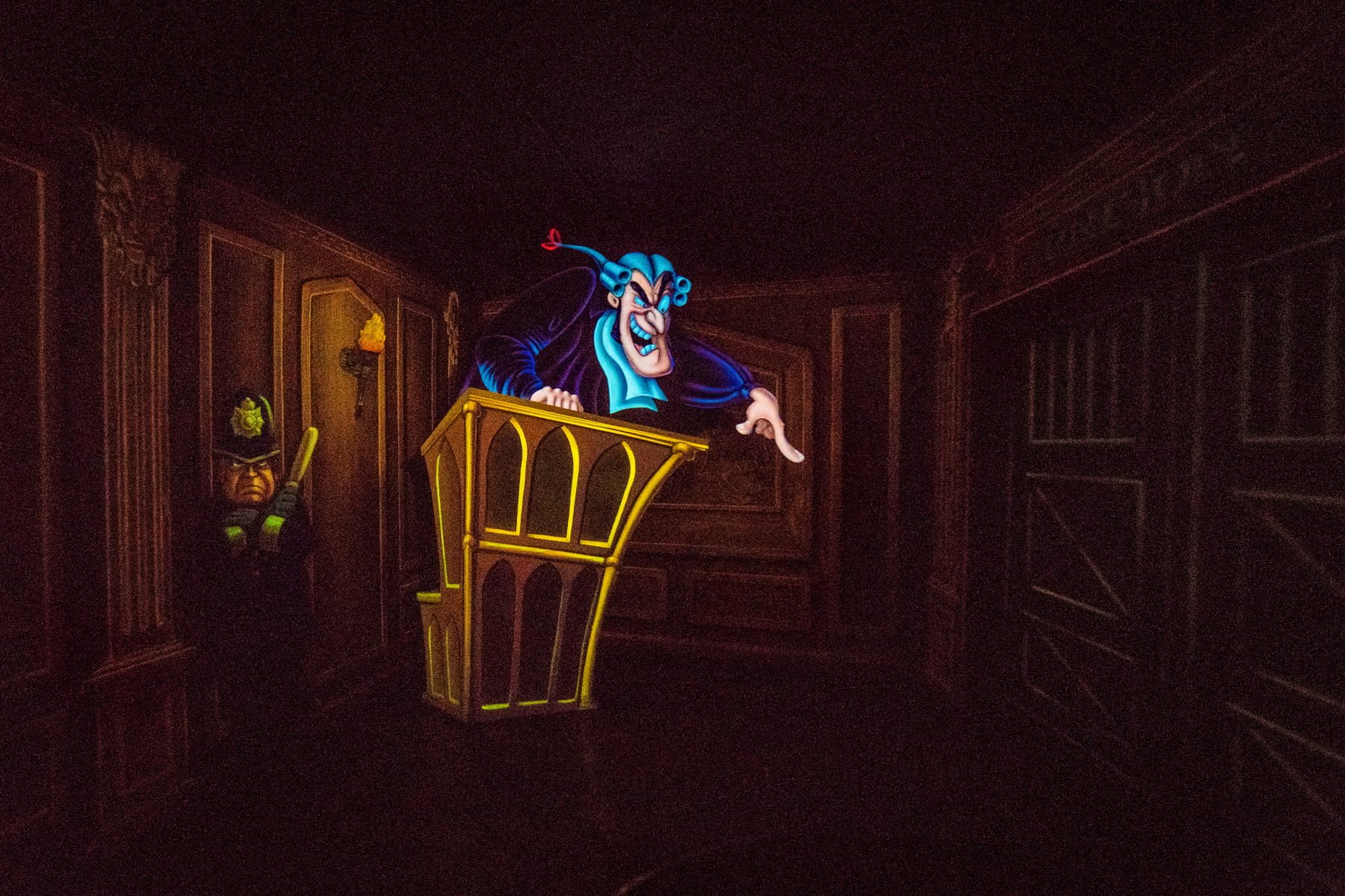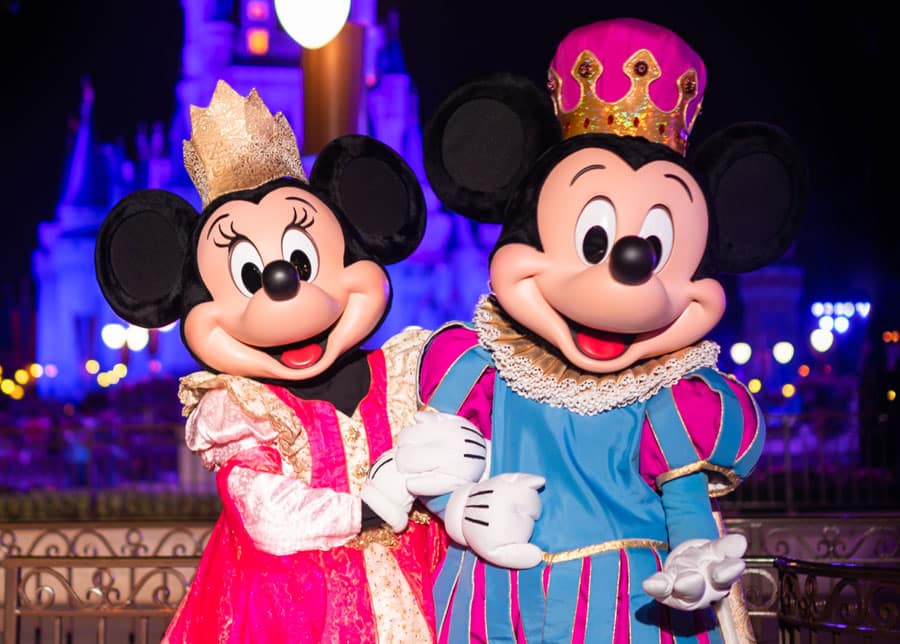Disney vs. DeSantis Dismissed
Walt Disney World’s federal lawsuit against Governor Ron DeSantis, Secretary of Florida’s Department of Commerce, and all members of the Central Florida Tourism Oversight District (CFTOD) has been dismissed. This post covers the order granting the motion to dismiss, plus a brief bit of commentary.
For starters, it’s been a relatively quiet 6 months in the battle of Disney vs. DeSantis. Hopefully you’ve enjoyed it as much as I have. Aside from passing references to this litigation in What Bob Iger Needs to Fix at Walt Disney World & Beyond in 2024 (under “Quiet Controversy”), we haven’t discussed the standoff with the state much since last June. In part, that’s because the cases (plural, this is one of two) have offered only procedural updates for the most part. Not exactly exciting or sexy stuff that normal person planning a Disney trip wants to read about.
It’s also because (thankfully) Governor DeSantis and Bob Iger have mostly shut up about it. Now the latter can direct his efforts on fighting Elon Musk and Bob Chapek. Or maybe Iger will pick a new fight with, I dunno, Jared Leto. He’s got another couple years as CEO and, if you ask me, Leto totally deserves it. (Why does he keep showing up in movies I’d otherwise want to see?!)
If you’re simply looking for the short and sweet conclusion, it’s on page 3 of the Order: “Disney lacks standing to sue the Governor or the Secretary, and its claims against the CFTOD Defendants fail on the merits because ‘when a statute is facially constitutional, a plaintiff cannot bring a free-speech challenge by claiming that the lawmakers who passed it acted with a constitutionally impermissible purpose.'”
In plain English, the key part of this–the statue being facially constitutional–means that the free-speech argument fails because the law replacing RCID with CFTOD itself is valid. That means that even though DeSantis and co. were quite clear in their motivations for passing the law revoking Disney’s self-governing district–to retaliate against Disney for speaking out against pending legislation–it did not matter because the law itself was constitutional. Disney had no right to its own special district of indefinite duration, and Florida had the authority to revoke and replace it for no reason or any reason (even a bad one!).
At least according to the reasoning of this order, the motivations of elected leaders in promoting or passing said law were irrelevant. Judge Winsor found that only the end result is what mattered, and that was legally permissible. If you didn’t listen to the press conferences and the interviews and so forth–and just looked at the language of the law itself on its face–it would survive legal scrutiny. (And to be sure, one could envision politicians on the other side of the aisle passing a very similar law–they had questioned Disney’s control of the district for years, albeit never all that seriously.)
It would be like if I were governor and held a bunch of press conferences talking about how much I hate rodents. Then one day, a mouse criticized some laws I signed. So in response, I said all mice suck and I was going to punish them because how dare they speak out against me. I then made a law effectively restricting rodent access to trash cans and they sued, arguing that I retaliated as a direct result of them engaging in protected speech.
They’re right; I did. That may not be cool of me, but that’s more a distraction as a matter of law. The operative legal question is whether the law itself, in isolation, is fine. Am I able to restrict the rights of rats to trash? If so, the case is dismissed. And even if not, do rodents really have standing to sue me in the first place? After all, they’re rats.
Honestly, this hypothetical example is slightly more cumbersome than the actual facts of this case, which are practically written-up as if they’re a bar exam hypothetical–the kind you’d seldom encounter in the real world. Given that, I’ll pull some excerpts from the Order (you can read the full 17-page court document here) that hopefully provide a bit more clarity about this decision.
The court ruled that Disney has not shown standing to sue the Governor or the Secretary. To the extent that Governor contributed to Disney’s injury by appointing CFTOD board members, that action is in the past–there is no future injury from which injunctive relief can provide a remedy. Think of this as the Doctrine of What’s Done is Done.
From the Order: “The analysis could be different if the Governor had not yet made any appointments. But as things stand, if this court enjoined future appointments, Disney would face the same situation it faces now: it would be operating under the CFTOD board, over which it has no control. Stopping hypothetical future appointments would not redress any alleged imminent harm.”
Disney also contended it had standing because the Governor was exercising (ongoing) actual control over the CFTOD board. To that, the court said this: “Disney has not alleged any specific actions the new board took (or will take) because of the Governor’s alleged control. In fact, Disney has not alleged any specific injury from any board action. Its alleged injury, as discussed above, is its operating under a board it cannot control. That injury would exist whether or not the Governor controlled the board.”
More interesting, I think, is the free-speech challenge dismissal: “it is settled law that ‘when a statute is facially constitutional, a plaintiff cannot bring a free-speech challenge by claiming that the lawmakers who passed it acted with a constitutionally impermissible purpose.’ And this settled law forecloses Disney’s claim.”
“The Legislature can determine the structure of Florida’s special improvement districts. Disney does not argue that the First Amendment (or anything else) would preclude the Legislature from enacting the challenged laws without a retaliatory motivation,” the court continues. Basically, since the law itself does not facially “impinge on any constitutional rights” a purportedly retaliatory motive does not matter.
“No one reading the text of the challenged laws would suppose them directed against Disney. The laws do not mention Disney…the secondary problem is that the laws’ effects are not limited to Disney. The laws are directed at a special development district in which Disney operates. But as Disney acknowledges, it is not the district’s only landowner, and other landowners within the district are affected by the same laws.”
At the end of the day, under the law of this Circuit, “courts shouldn’t look to a law’s legislative history to find an illegitimate motivation for an otherwise constitutional statute.” Because that is what Disney seeks, its claim fails as a matter of law.
Following the Order, Disney issued this statement: “This is an important case with serious implications for the rule of law, and it will not end here. If left unchallenged, this would set a dangerous precedent and give license to states to weaponize their official powers to punish the expression of political viewpoints they disagree with. We are determined to press forward with our case.”
This statement is vague, probably purposeful. This could be construed to mean that Disney plans on appealing, which would go to the United States Court of Appeals for the Eleventh Circuit. The problem with that, though, is that a lot of the precedent in this order–in fact, the main decision cited–is from the 11th Circuit. So it’s hard to see that path working out for the company.
It’s also possible that they’re referring to the state case between CFTOD and Disney. It’s been a while since I dug into the specifics of that case, but if I recall correctly, it revolved around whether notice for the Development Agreements made between the company and former RCID was defective.
Turning to commentary, we have what’s seemingly an unpopular opinion. That it’s possible for Walt Disney World to be morally correct–that this sets a dangerous precedent that could have a chilling effect on speech. That it’s not difficult to envision a shoe is on the other foot scenario where a liberal governor punishes a conservative company–and think that would also be a bad thing that we shouldn’t want to see happen.
But, with that said, that it’s also possible for Walt Disney World to be wrong in continuing to pursue this–that this standoff with the state staying in the news is bad for business (see Disney’s Reputation Falls Further). That, at this point, they are not “winning over” new customers by continuing to engage in culture wars, and are instead reminding ones they’ve alienated of that. That a lot of Disney’s past success has come as a cultural unifier that has found a way to be trusted by and resonate with people of all persuasions and walks of life.
I know many of you disagree with this because you’ve said as much in the past. That’s fair enough. This is a big legal question with significant stakes and a lot of entrenched opinions about Florida and/or Disney overstepping. Personally, I think it’s possible to believe all of that and also that it benefits no one for the state and its biggest business to be engaged in a standoff, embroiled in controversy, and wasting millions of dollars on a legal fight. The only people winning in this matter are the lawyers and the rage farmers who traffic in divisiveness.
Ultimately, I look at Disney’s previous standoff with another state as illustrative for a good shoe on the other foot example. It’s easy to forget, but Bob Iger resigned from California Governor Gavin Newsom’s Economic Recovery Task Force back in October 2020 due to tensions between that state and Disneyland. That was a bitter battle at the time, and one that cost Disney dearly in not being able to reopen its Anaheim parks.
Since then, Iger has made inroads improving Disney’s relationship with California. As a result, Newsom has become an ally to Disney, making overtures to get the company to increase its presence in the state. The next step out west is getting DisneylandForward approved, which should happen this year. Disney has done a great job of community outreach in both the City of Anaheim and the state.
Regardless of how you assign blame in that battle, the end result was decidedly “not good” for Disney and it definitely “is good” that Disney has done the hard work of repairing the relationship, irrespective of whether the company was right or wrong in the first place. Yet another example of the Doctrine of What’s Done is Done.
That is precisely what I want to see happen in Florida. It doesn’t matter what opinions you hold of Bob Iger or Ron DeSantis. That doesn’t change the fact that Walt Disney World is absolutely huge for Florida’s economic engine. It is mutually advantageous for the company and the state to repair their relationship.
Disney wants to invest billions of dollars into Florida and, presumably, the state wants that, too. So even as the state case and a potential appeal here go on, I truly hope that Iger and DeSantis, or at least representatives from Florida and Disney, are working behind closed doors to fix things and move forward. Everyone loses and no one wins when these states and one of their largest businesses are at odds.
Planning a Walt Disney World trip? Learn about hotels on our Walt Disney World Hotels Reviews page. For where to eat, read our Walt Disney World Restaurant Reviews. To save money on tickets or determine which type to buy, read our Tips for Saving Money on Walt Disney World Tickets post. Our What to Pack for Disney Trips post takes a unique look at clever items to take. For what to do and when to do it, our Walt Disney World Ride Guides will help. For comprehensive advice, the best place to start is our Walt Disney World Trip Planning Guide for everything you need to know!
YOUR THOUGHTS
If you’ve read all or part of the Order Granting Motions to Dismiss in favor of Florida Governor Ron DeSantis & Friends, what’s your take as a matter of law? Any reaction to the latest season of the Reedy Creek Improvement District drama? Hope this escalating battle starts to de-escalate soon so we can focus again on the fun of the parks? Keep the comments civil, and avoid personal attacks or perpetuating pointless culture wars. Respectfully debating the change is totally fine, but don’t attack others or troll for controversy. That’s why Facebook was invented.






I’m just happy that Imagineering stayed in California and the awful Disney at Lake Nona thing isn’t happening.
If Imagineering was in FL where it belongs, I might be working there. I seriously considered going to work for the creation and construction of Galaxy’s Edge but there is no way I will ever live back in CA again. There’s not enough money for that.
Is this nonsense finally over? Can we get back to BUILDING ALL-NEW ATTRACTIONS now?!?!?!?!?
I see a lot of comments about messaging in contemporary Disney films. Folks, the messages and politics have always been there. The difference is that in the past, Disney was able to find success by tapping into the unifying morality of the moment and there isn’t a unifying point of view on ANYTHING right now. This has clearly caused them to stumble and I can’t fault them. Who do you appeal to when there is no longer a majority?
No coherent piece of art has ever existed without a POV. We’re just more aware of it now. George Orwell was right when he said, “All art is propaganda.” You just don’t notice it until you disagree with it.
I agree with this comment, but I’d also add that I don’t care if I disagree with the message/politics/morality so long as the art itself is good. For a long time, Disney did an exceptional job of this.
Personally, I think it’s healthy to see things from a different perspective or have viewpoints challenged. Too many people don’t want this now, though. They’re firmly entrenched in their own echo chambers, and view differing perspectives as flat-out unjust or actively harmful. They also nitpick way too much, making mountains out of molehills.
Oh for sure, Tom. I’m not saying the art hasn’t been bad in itself (I haven’t bothered watching the last few Disney animated films because I’ve been too disappointed too many times.) Mostly, I’m annoyed with a certain sentiment that’s saying, “The art’s bad because the message isn’t one I agree with.”
Disney storytelling has a huge storytelling problem these days. That’s undebatable. I’m just pushing against the idea that it’s the politics in the films that are messing up the storytelling. That ain’t it.
I also think a lot of folks watched something first when they were ten so they didn’t get the political messages, and have trouble looking past that first interpretation. Scar has an entire H*tler march while forming his fascist empire that privileges one group (hyenas) over everyone else, that subjugates women and where he is a poor steward of the environment that turns Pride Rock into a wasteland, or Gaston riles the town up into a mob to attack someone for being different based on their assumptions of him based on appearance (largely considered a metaphor for the HIV crisis) so that he can involuntarily commit an elder and trap his daughter in a forced marriage, but these days having a girl star in a superhero movie is seen as “political” and 90s Disney is seen as the good old non political days. Doesn’t add up at all, but to those who push this idea, facts don’t matter so what are you gonna do?
We could go back and forth for months on such issues. I and many others here grew up watching cartoons on Saturday mornings and didn’t think twice about Bugs Bunny dressed as a female, or a safe being dropped on someone’s head. They were just funny cartoons. People read far too much into everything these days. I don’t really think my fellow GenXers (the best people!) are the ones causing the issue. We get comedy, humor, hyperbole. But far too many folks are hyper-sensitive to everything, seeing problems where they simply don’t exist. The shape of a cloud in an animated feature, seriously?
Now, these live action remakes are for the most part just horrible, overly reliant on half-assed CGI effects versus any kind of technical innovation. Cinderella was really good, whereas others just sucked. I don’t see any problem with a female superhero lead, or a black or other ethnic hero and I don’t think very many others do. Luke Cage was awesome. Whereas Black Panther (the movie) sucked in comparison to the comics. Talk about a ridiculous plot with poor writing…
Captain Marvel was ridiculous, with her showing up and single-handedly overshadowing everyone else together. Brie Larson’s idiotic public comments didn’t help the absurdity either. On the other hand, enhancing the role of female supporting characters such as Thor’s mother and Aquaman’s lady (crazy Amber Heard’s real-life persona notwithstanding) were great story enhancements. Black Widow I think could show more strength and enhance the Marvel Universe more. And there’s an opportunity to expand the franchise with her sister and the others rescued form the Red Room. I really wish Disney had done better with the Tiana opportunity than ruining Splash. I love New Orleans and rthe3 bayous, the amazing people and food. A new land with a new attraction and signature restaurant would have been so, so much better.
I think people’s expectations have suddenly gotten way too high. In regards to the live action remakes, the quality varies but I found them to be fun. People forget Disney in the past would churn out low budget flicks like Herbie, Flubber, etc. Not every Disney release can or should be high art.
That is a very good point. I guess I just would rather see something new than lazy rehash of an existing story. As you well know, many things in life are better left with a little to the imagination!
This is a slippery slope, and a chilling outcome. And I agree that it can swing both ways, and is scary. What I have found equally interesting and unsettling are the comments. It is a supreme example of humans’ general struggle with the ability to hold seemingly competing statements as true. It becomes harder when one of those statements conflicts with personal belief. In this particular type of example… A company certainly has every right to speak for or against something whether it is a value of the people in charge, an attempt at supporting employees and/or constituency, economically motivated, or otherwise. Companies obviously should want to do so in as broadly a palatable way as possible, but they are free to do it as they like. It is happening all the time (in sometimes big ways), but most of the time, we don’t know what companies are lobbying for or against. And so we can bop along in our naïveté. Then, something like this happens. The dissonance is ringing loudly in our minds, that we like company X but we believe idea 3, and how can we believe in and support both at the same time? The answer is because life and society are incredibly huge, diverse, and complicated. Again, it’s not always simple, and we all have to weigh what matters more to us in our personal lives. But it is ok to hold two, three, four competing thoughts at the same time. It is ok for us to decide one way, and for someone else to decide another. We are all complex creatures. We would do well to find a way to understand and respect that about ourselves, others, and the larger world around us. The world has never been black and white. And things are getting greyer and greyer as the population grows larger and larger, and our societies become more and more interconnected globally.
Haha, we deal with this in ethics discussions as professional engineers all the time and you are absolutely correct. There’s also the fact as I noted in another comment that most people are selfish and only see the one thing or aspect they want, and to hell with everyone else. Ideally, companies/corporations, unions, churches or other ‘charitable organization’, etc. would not be allowed to make any political donations at all.
Your point about people struggling with more than one ‘correct’ aspect at a time is spot on.
Great comment, HCinKC.
The crux: Disney vows to donate to one governor and not to the other.
The comments on this post and the Epic Universal one reveal the myopia that Disney Parks fans have. Disney is a global, highly diversified company that is constantly on expansion in a wide variety of areas. Have there been film misfires? Sure, and Disney also produces some of the most popular and critically acclaimed TV shows of the last couple years. Is Disney World looking worse for wear? Yeah, but they are also expanding to Singapore with cruises, building out Adventures by Disney and the international parks. Their licensing chugs along internationally. The reality for many parks fans is that Disney, as the popular phrase a couple of years ago went, is just not all that into you.
True, but you must realize that these days most people don’t look at the big picture and only care about aspects that interest them personally. Most fans here will never have the opportunity to see the worldwide parks and don’t care about generally insipid children’s TV programming. Unlike some people, most of us are lucky to get to one of the offshore park locations. Look at society in general, seems most only care about themselves and are single-issue voters, so in this case it’s all about the parks in CA and FL. While I do see the big picture, I will admit I really mostly just care about investment in the parks because that’s what I use the most…
This blew up in DeSantis’ face. He can thank THE Mouse for being so disliked by so many. I hope the people who say they have been alienated by Disney’s stance on this, stand behind their word- and don’t return to the parks. There are many cast members who are LGTBQ and we need to support them. Being an annual Passholder, I frequent the parks often and without the cast members, you can’t run the park. Love is Love!! You have many, many people who support you and want to stand up for LGTBQ cast members (as well as ALL cast members). Fight on, Disney!!
The lawsuit did not blow up in DeSantis’ face. Frankly, a lot of people do not care because this lawsuit doesn’t impact their lives one way or another. Dismantling the Reedy Creek District was long overdue and would have happened eventually anyway, just likely not this quickly. Disney chose to alienate a substantial portion of its fan base, and not just in the U.S. It’s going to take Disney a long time, if ever, to recover from this debacle. Time marches on!
It’s interesting that Universal just got a special district with many of the provisions of the original Reed Creek district. Somehow, the supposed deficiencies of the Reedy Creek Special District don’t apply if you don’t piss off the governor.
As to Disney alienating its fan base, a plurality of its customers think standing up for what’s moral, just, and American is what Disney has always stood for. It appears that some Disney fans have fixated on the overt lack of gay and minority characters in previous movies and completely missed the moral and emotional parts of the stories.
Yeah, I don’t think dismantling as you put it of RCID was overdue at all. It was a PUD intended to last indefinitely and has greatly benefited the state for decades. The roads inside RCID were always top-notch and pretty good signage, more than can be said of many areas of FL and most states. EMS services were also far better than practically anywhere on the planet. There were no tangible minuses for the state to the RCID agreement.
Mike, that’s not an accurate representation of what happened. Reedy Creek had powers that no other district in the state had due to the deal being grandfathered in. All Florida did is remove those excess powers, so that Disney’s new district has the same powers as Universal’s district.
The attorney who actually filed the paperwork to form Universal’s district is a YouTuber who goes by the name of Legal Mindset. He has several videos going into detail about how Universal wanted to get the same powers as Reedy Creek and were denied because those power are no longer given to new districts. Those same people also expressed a desire to remove those powers from Reedy Creek.
As a warning, Legal Mindset is very conservative, so you might need to sort through some bias. But he was right and is an expert, so I really think he’s worth listening to. He did an excellent job of explaining why Disney doesn’t have standing – which was the end result of this case.
Legal Mindset is an anonymous internet troll, who claims in his other channel to not even live in the United States. His main source of income seems to be selling access to videos to get out of DUIs. Would you take medical advice from an anonymous doctor?
Believe me, I’d recommend a different YouTuber if there were anyone else with his experience, but it’s pretty easy to verify that he is a lawyer with an active Florida bar registration. And, yes, my understanding is that he moved to South Korea at some point.
If you don’t trust him, what I’d recommend is looking at the relevant Florida laws and filings yourself. That’s what I did originally, since I was curious about the structure of the RCID. You shouldn’t fully trust any random person on the Internet – myself included – without doing your own research.
The more I read on it, the more I came to the conclusion that no private company should have as much power over a municipality as Disney had over Reedy Creek. So while I don’t love the motivation for why the political will to eliminate the district materialized, eliminating it was – in my opinion – absolutely the right move.
And conversely, no government entity should be able to have so much control or influence over a private company. RCID worked for everyone involved, and benefited the state of FL far beyond what anything else in the state has over the last decades since it came into being. As for freedom of speech, corporations need to just conduct their business and not become involved in political issues. They should not be allowed to make political contributions at all. Nor should unions or churches or other ‘nonprofit’ organizations of any kind.
It’s not possible to look up the Legal Mindset’s credentials because he’s using a fake name. I find the chances that a guy working under an obviously fake name from South Korea just happens to be an expert in an obscure branch of Florida law to be extremely unlikely.
As to the legality of the Florida governor’s actions, I find it very unsettling that a politician can state he wants to punish a company because of an opinion and then go ahead and punish them with no repercussions under the First Amendment. If that’s possible, then the First Amendment is worthless, and governors in liberal states can just start passing laws to punish companies with a conservative bent for voicing opinions.
I understand why you don’t believe that I found the info, but it is out there if you know where to look.
As for the First Amendment issues, I’m also not particularly happy about this course of events. But I don’t like the alternative either, that an otherwise constitutional law can’t be passed because it’ll affect someone that made you mad once.
I am very happy with this outcome. It’s time for Disney to get back to running it’s business. After all, it’s going to have serious competition next year when Epic Universe opens. I don’t know why any business would want to alienate a significant portion of its fan base. The legislation Disney aimed to fight was promoted and supported by the Florida voters.
Disney has limited funds available right now, so just change gears and double down with all the investment they can in CA. Someday FL may come around, and that will be the time to invest there again. Pains me a bit, but enjoying Disneyland more anyway, so would happy for more investment in CA.
I also prefer LA, who doesn’t enjoy paying 450/night for a Hyatt, and then walking past 11 homeless people shooting up heroin by the front gates, only to enter DCA and finish all 6 rides by 11:50am
I was just at Disneyland/DCA in November, and none of that is true. Yes, LA has a homeless problem, but I saw none of that going to Disneyland. Since LA is a major metro area, hotels are more expensive than Orlando, but I got a swanky room on a Travelocity discount for around $150/night.
I will say this: Orlando traffic is pretty bad, but LA’s traffic is famously bad. Even so, getting in and out of Disneyland was way easier than WDW, because the sheer size of the later makes it a huge maze.
Anaheim is not Los Angeles. They’re not even in the same county, and those are certainly not the prices of Anaheim hotels–unless you’re talking Disney-owned ones, which the Hyatt obviously is not.
This isn’t to say the area doesn’t have its issues, but so does Orlando. And pretty much every major metro area. Having lived in both, the two Orange Counties are much more alike than they are different, regardless of their respective states as a whole.
Oh, come one man, it’s all one giant megalopolis! I used to harass my now deceased friend from Long Beach that it was all L.A. just because he took the bait. Here in San Antonio, it’s all Bexar County (albeit many smaller communities grown into each other) but I’ve lived in other major cities that are like what you describe, such as Denver, where the city/county is only one part of ‘Denver’ metro area.
I do think it’s fair to say traffic sucks all over that area though, until you get out to Chino, etc. And yes, Orlando traffic is a pain too. Nothing like Houston, which is still to me the winner of suck in that regard.
Just want to say I am with you Mike. No one is shooting heroin outside DLR, and you can absolutely find affordable places to stay. And DCA has enough to do that I have never been done by 11 am!